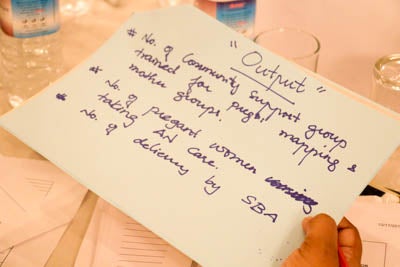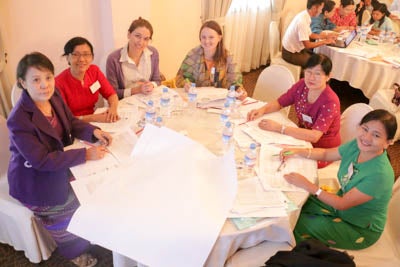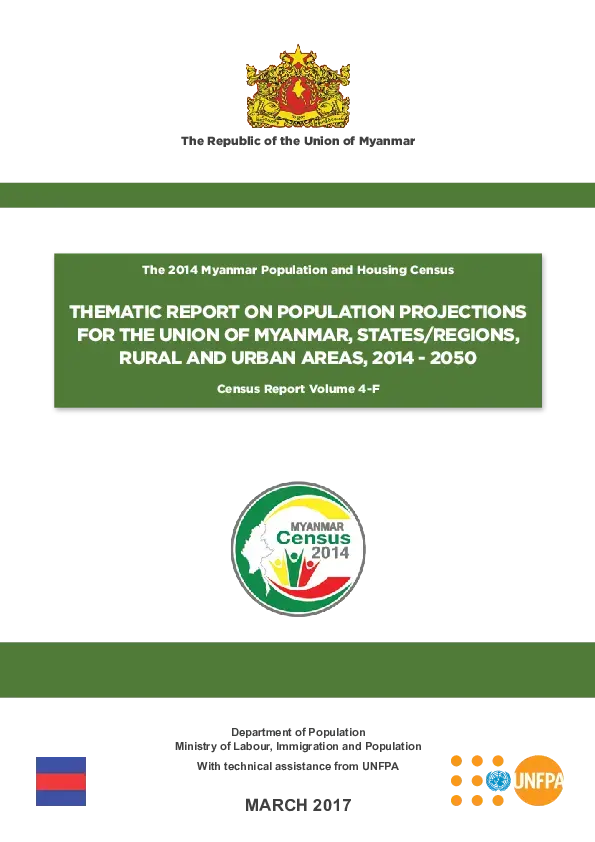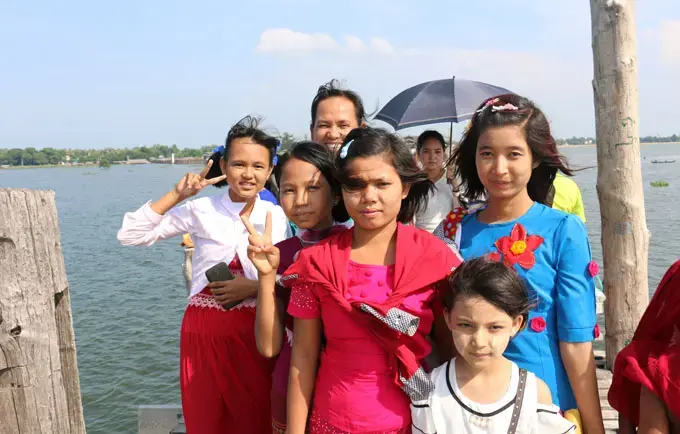Approximately 60 representatives from implementing partners as well as UNFPA staff attended a two-day training session held in Yangon from 20-21 October 2014, to boost their existing planning, monitoring, measuring, evaluating and planning skills on joint programme activities on core issues such as sexual and reproductive health rights (SRHR), maternal health (MH), Adolescents, HIV/AIDS, Population, Gender and Humanitarian Assistance.
The two-day workshop was part of efforts to better streamline reporting and knowledge sharing on joint activities between the UNFPA and its partners, including developing of a road map outlining key priorities need to further strengthen results based management (RBM) and evidence based programming.
“This workshop is beneficial to all of our staff and implementing partners, as it gives us the necessary guidelines on result-oriented planning, needed to run our joint programmes. This initiative is aligned with UNFPA’s new strategic plan and it will help us to better set targets, and monitor the programmes more systematically,” said Dr Hla Hla Aye, UNFPA Assistant Representative of Myanmar.
Over the course of the two-day workshop the participants’ were provided with theoretical knowledge as well as practical experience on how to use results based management tools needed to further enhance and set goals for programme activities, to achieve desired results relating to outputs, outcome, including setting higher goals for their activities.

U Win Myint, UNFPA Monitoring and Evaluation Officer who helped organized the training session said, “The tools we learnt from the workshop will help us to distinguish outcomes, outputs and activities needed to carry out and achieve the results which we have planned. As an exercise, UNFPA’s staff and the implementing partners worked together to develop a result-based work plan for the coming year.”
He added that the workshop gave UNFPA an opportunity to encourage knowledge sharing with its implementing partners as well as assist them in setting goals needed to ensure that their reporting of programmes would be more effectively and efficiently.
Daw Tha Zin Nwe, General Secretary of Myanmar Maternal and Child Welfare Association said that the Result-Based Management and Evidence-Based Programming provide her with a “comprehensive formats for planning and evaluation”.

Participants included representatives from the Department of Health (MoH), Department of Population (DoP), Department of Medical Science, Department of Foreign Economic Relations, Department of Medical Research from Upper Myanmar (DMR), Central Statistical Organisation (CSO), Myanmar Medical Association (MMA), Myanmar Maternal and Child Welfare Association (MMCWA), Myanmar Nurses and Midwifes Association (MNMA), Myanmar Health and Development Consortium (MHDC), Mary Stopes International (MSI), Populations Services International (PSI), François-Xavier Bagnoud (FXB), Myanmar Anti-Narcotic Association (MANA), John Snow International (JSI) International Rescue Committee, Myanmar Red Cross Society(MRCS) and Metta Development Foundation.





